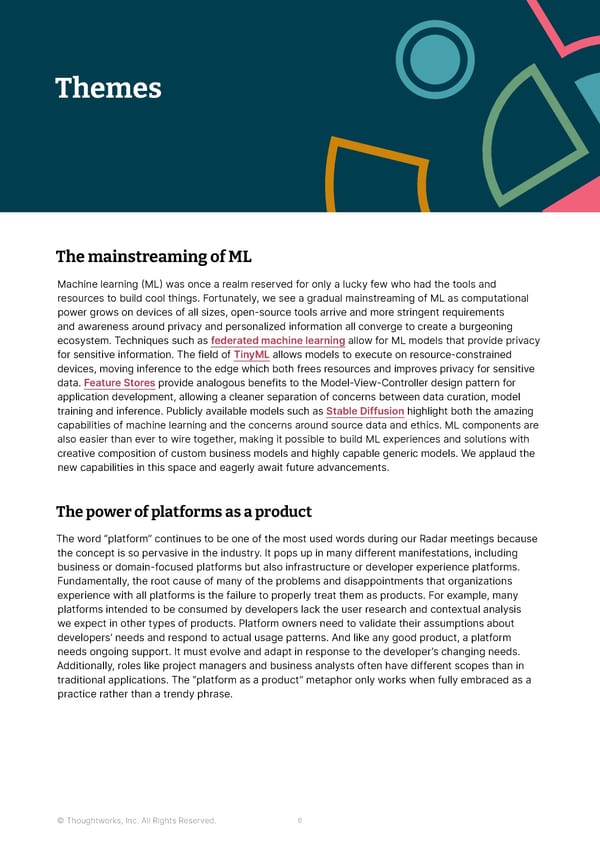Thoughtworks Technology Radar Themes The mainstreaming of ML Machine learning (ML) was once a realm reserved for only a lucky few who had the tools and resources to build cool things. Fortunately, we see a gradual mainstreaming of ML as computational power grows on devices of all sizes, open-source tools arrive and more stringent requirements and awareness around privacy and personalized information all converge to create a burgeoning ecosystem. Techniques such as federated machine learning allow for ML models that provide privacy for sensitive information. The field of TinyML allows models to execute on resource-constrained devices, moving inference to the edge which both frees resources and improves privacy for sensitive data. Feature Stores provide analogous benefits to the Model-View-Controller design pattern for application development, allowing a cleaner separation of concerns between data curation, model training and inference. Publicly available models such as Stable Diffusion highlight both the amazing capabilities of machine learning and the concerns around source data and ethics. ML components are also easier than ever to wire together, making it possible to build ML experiences and solutions with creative composition of custom business models and highly capable generic models. We applaud the new capabilities in this space and eagerly await future advancements. The power of platforms as a product The word “platform” continues to be one of the most used words during our Radar meetings because the concept is so pervasive in the industry. It pops up in many different manifestations, including business or domain-focused platforms but also infrastructure or developer experience platforms. Fundamentally, the root cause of many of the problems and disappointments that organizations experience with all platforms is the failure to properly treat them as products. For example, many platforms intended to be consumed by developers lack the user research and contextual analysis we expect in other types of products. Platform owners need to validate their assumptions about developers’ needs and respond to actual usage patterns. And like any good product, a platform needs ongoing support. It must evolve and adapt in response to the developer’s changing needs. Additionally, roles like project managers and business analysts often have different scopes than in traditional applications. The “platform as a product” metaphor only works when fully embraced as a practice rather than a trendy phrase. © Thoughtworks, Inc. All Rights Reserved. 6
 Vol 27 | Technology Radar Page 5 Page 7
Vol 27 | Technology Radar Page 5 Page 7